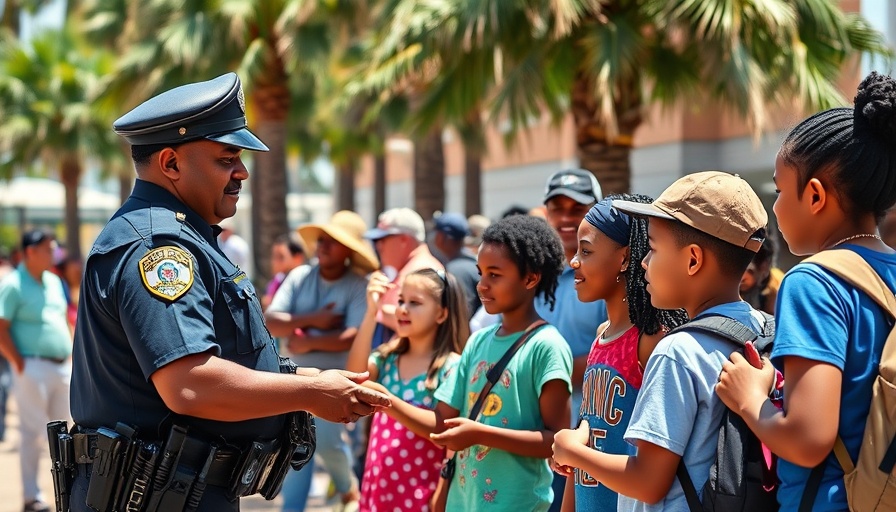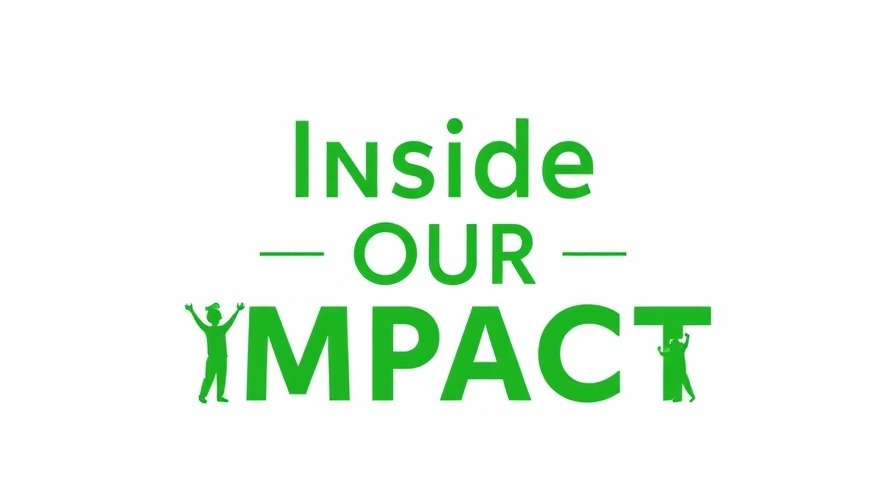
Do Simple Acts of Kindness Matter in Our Communities?
In today's fast-paced world, where individuals often rush from one commitment to another, the importance of simple acts of kindness can easily go unnoticed. Moments such as a child helping an elderly neighbor with groceries or a young athlete demonstrating sportsmanship not only foster community spirit but also serve as essential pillars of societal cohesion. These seemingly small gestures can have profound implications on community welfare, encouraging others to reflect on the values of empathy and care.
Historical Context: The Evolution of Community Engagement
Historically, acts of goodwill have been the bedrock upon which communities have built trust and cooperation. These traditions can be traced back centuries, rooted in the understanding that strong communal ties lead to enhanced safety and security. As society progresses, revisiting these fundamental values becomes critical. After all, a collective culture of kindness may reduce crime rates and promote healthier, more supportive environments.
Counterarguments: Why Some Dismiss Kindness
Despite the overwhelming benefits of good deeds, some may argue that acts of kindness are naive or superficial gestures that do not address systemic problems. Critics point to the complexities of societal issues—like poverty, inequality, and crime—that require systemic change rather than individual acts. Understanding this perspective is important, yet one must consider how small acts can lead to larger societal transformations. Social scientists suggest that fostering an environment rich in kindness not only provides immediate support but also lays the groundwork for addressing more significant societal challenges.
Benefits of Recognizing Kindness in Law Enforcement
For law enforcement professionals, acknowledging and promoting acts of goodwill within communities can play a significant role in community policing efforts. By engaging with citizens through recognition programs, law enforcement can build trust and enhance their reputation as allies rather than adversaries. The proactive engagement of law enforcement in recognizing everyday kindness can serve as a tool for crime deterrence, with community members feeling more encouraged to participate as active guardians of their neighborhoods.
Actions Policymakers Can Take to Foster Kindness
Government policymakers have a unique opportunity to institutionalize kindness through community initiatives that promote volunteerism and provide funding for civic engagement programs. Creating public awareness campaigns that highlight the value of kindness can encourage citizens to participate. Furthermore, investing in community centers and safe recreational spaces for children can contribute to environments where positive interactions flourish.
Moving Forward: Practical Insights to Foster Kindness
To truly harness the potential of goodwill, communities, and policymakers alike must implement actionable steps. First, establishing recognition programs to honor community members’ acts of kindness can motivate others to follow suit. Second, law enforcement agencies should prioritize outreach programs that encourage citizen cooperation and involvement. Ultimately, fostering a culture of kindness is a collaborative effort that can give rise to vibrant, resilient communities.
Please take a moment to reflect on your own role in your community. Are there small acts of kindness you can contribute to promote goodwill? Your actions could inspire change!
 Add Row
Add Row  Add
Add 

 Add Element
Add Element 




Write A Comment